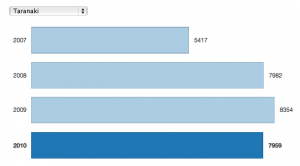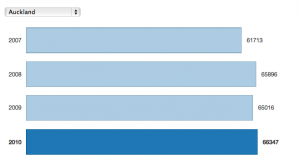Almost five months ago, I gave birth to my third child. After each birth, I have tracked my weight loss. I have a few self-chosen rules* for this:
- I don’t weigh myself at all during pregnancy. I don’t want to become obsessive about weight gain and didn’t gain what I consider to be unhealthy/ridiculous amounts. I did seem to put on a lot more weight with my third pregnancy, right at the end.
- I weigh myself first thing each morning, and only record the weight if it’s gone down. It’s more motivating this way for me.
- I eat when I’m hungry, and don’t worry too much about how much I eat in the first three months after giving birth. I always try to eat healthily.
- I don’t follow a diet. I do watch what I eat in the evenings as I find this is when I’m most tempted to eat unhealthily. Living reasonably far from food shops helps curb the temptation to go grab snacks.
*I’m not in any way a weight loss expert. Disclaimers etc!
While there’s plenty of cool technology and apps to track your own weight and fitness data such as Fitbit (there’s even Wifi scales!), I’ve been using a more humble approach by just manually typing my weight into Excel.
I’ve found this to be such a great motivator for me to see my progress, and to compare it against previous births. There’s something quite nice about manually collecting data and seeing the graph update.
So, I’m going to do a great reveal and show my graphs so far. I don’t lose weight after giving birth incredibly fast, so I hope this is also a nice example for others to see.
For reference, I’m 174cm tall, and normally about 66-68kg. When I was younger, I was about 62kg. I have exclusively breastfed each of my babies.

For each birth, there’s been an initial dramatic weight loss in the couple of weeks after giving birth (water retention, body changes etc), then there’s been a flat period. Note that I didn’t start tracking my weight until a little later with my first child. Then there’s been periods of quick weight loss (often connected to increased breastfeeding!) and periods of much slower weight loss.
In case you’re wondering, I’m currently feeding my baby a lot more as she’s started waking in the night again as she has a bit of a cold and may be teething or just being a baby and waking more!
After the first two births, I went down to my target normal weight and then stopped weighing myself.


